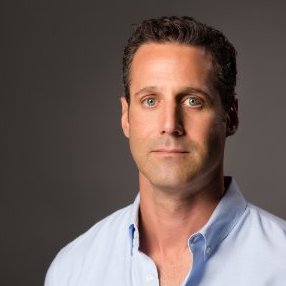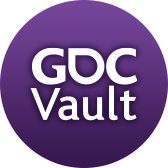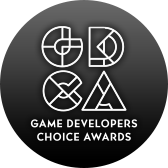At GDC 2018, attendees will have the opportunity to interact with an array of sponsors who help fuel the games industry, including our Diamond Partners, whose support plays an integral role to the success of GDC.
To introduce you to our Diamond Partner Oculus, we've reached out to Jason Rubin, Oculus vice president of content, in order to learn more about the state of virtual reality in 2018.
Don't miss out! The Game Developers Conference in San Francisco next March will be a hub for many more great industry titans. For more visit the show’s official website.
Can you introduce yourself and explain what we can expect out of Oculus at GDC?
I'm Jason Rubin, VP of Content at Oculus, where I oversee strategy and development of first, second and third-party titles across the Oculus platform. I've been in the game industry more than 30 years, from co-founding Naughty Dog to serving as president at THQ before I joined Oculus. Oculus is coming off a monumental year: Rift continued dominating the PC VR market as prices dropped, Touch launched and became the defacto input device, our content library grew to over 2,000 titles with numerous accolades, we unveiled the first standalone VR headset with Oculus Go, and we continue work on the Santa Cruz prototype. Our achievements happened alongside PC VR growth across the industry, and that's beneficial for all of us as more people get into VR every day. And now developers working on cross-platform titles can expect to make some real money.
Needless to say, we're excited about the year ahead, starting with GDC. We’ll offer a closer look at our 2018 roadmap and how we're laying the groundwork, through both tech and infrastructure, to help Oculus Developers find success in an increasingly developer-friendly marketplace.
Standalone VR headsets seem to be the next step in VR advancements. During Oculus Connect, Oculus Go was announced. Can you tell us more about the device?
Oculus Go offers a winning combination of accessibility and freedom, and it will be the easiest way for people for all ages to get into VR when it launches. It's binary compatible with Gear VR and uses the Oculus Mobile SDK, so developers will have a streamlined path to publishing. We’re really excited about what that means for consumers and developers alike.
What’s the biggest challenge for VR today, and how is Oculus navigating that?
VR is still so new—Touch has only been out for just over one year—and we’re constantly facing challenges, like any young technology. The scrutiny VR is facing comes from those who don’t understand how games and tech businesses work. People are eager to create some noise or a tipping point, but they’re shortsighted and we’re in this for the long haul. We want VR to be an integral part of people’s lives for decades to come; we will continue to invest and share knowledge with the community of pioneers helping us on this journey. A big part of this includes making it even easier for new developers to get started, and keep going, in VR. Again, VR is new. It’s only been a couple years—we are all writing the playbook, all making discoveries. New devs exploring VR aren’t far behind the pack, by any means, and are joining a strong community. Indie devs have been behind some of VR's biggest hits, and that isn't going to change any time soon. There are endless opportunities for fresh voices to introduce new creative standards.
We’ve seen VR being utilized in classrooms and the workplace as a learning tool. What contributions can Oculus provide to its community in order to make the emergent technology more accessible?
Educational and business uses of VR provide a great opportunity to demonstrate its power and utility. Being able to see VR in all its dimension will build demand and broader VR literacy, especially while not everyone has a headset. We can all help make VR more ubiquitous through accessibility (see Oculus’ library pilot for example) and affordable pricing. Early and often exposure, especially for students, can spark curiosity in the next wave of creators who will define experiences we haven't yet thought of.
What’s the path forward for Oculus?
We are investing aggressively on all fronts: hardware, software, content. We're hard at work in Oculus Research pioneering what VR (and AR) will look like 5 or 10 years down the line. We’re in deep with developers and we're not slowing down. We’ll keep working to provide the best tooling for developers. You'll see us building on early work with things like OpenVR to create more cross-platform systems and services. 2017 saw the launch of numerous social apps and games, like Echo Arena, that redefined shared presence. Once you've played a co-op game in VR, there's no going back—imagine a made-for-VR MMO—and the potential is astounding. We are helping more developers envision and enable these types of meaningful interactions.
What can attendees who visit Oculus’ booth at GDC hope to see?
You won't be able to miss our booth. We're trying something new this year: you'll not only be able to demo upcoming titles across multiple devices, but also hear from Oculus leaders and creators in talks hosted right on the show floor. Anyone curious about building in VR, hungry to strengthen their skills, or just craving time with like-minded peers is invited to stop by and hang out. 1:1 time with the community and the feedback we get from time spent at events like these is what keeps us going. Can't wait to see you there.
GDC 2018 will take place March 19-23rd at the Moscone Center in San Francisco. For more information, visit the show's official website, or subscribe to regular updates via Facebook, Twitter, or RSS.



